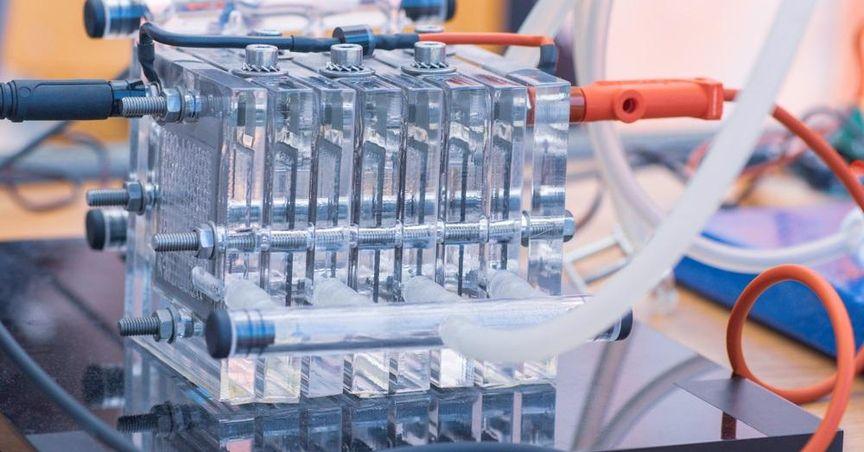Highlights
- Ballard Power Systems and Stadler US sign a multi-year agreement for supplying hydrogen fuel cell engines to California's rail system.
- The partnership involves providing 8 megawatts of FCmove®-HD+ fuel cell engines for the FLIRT H2 hydrogen-powered trains.
- The agreement supports California's efforts to decarbonize its commuter rail network and reduce reliance on diesel engines.
Ballard Power Systems (TSX:BLDP) has entered into a multi-year supply agreement with Stadler US to deliver fuel cell engines for use in California's rail system. This collaboration will provide 8 megawatts of FCmove®-HD+ fuel cell engines to power the FLIRT H2 trains, which are intended to replace diesel-powered trains on non-electrified or partially electrified rail lines in California.
California’s Push for Zero-Emission Rail Transportation
This agreement supports California's efforts to decarbonize its transportation system. With the purchase of 10 FLIRT H2 trains, Caltrans aims to replace traditional diesel-powered trains with emission-free alternatives. Additionally, there is an option for the purchase of up to 19 more trains. The FLIRT H2 trains, equipped with Ballard’s fuel cell engines, offer a cost-effective and environmentally friendly solution for regions where electrification of rail lines would be expensive or impractical.
Role of Fuel Cells in Sustainable Rail Transportation
Ballard’s FCmove®-HD+ fuel cells are designed to provide reliable, zero-emission power for various transportation applications, including buses, trucks, and trains. In the case of the FLIRT H2 trains, the fuel cells replace diesel engines, providing similar performance in terms of range, reliability, and refueling times, but without the environmental impact. The fuel cell-powered trains are part of a growing trend toward hydrogen-powered transportation solutions that contribute to reducing carbon emissions in the transportation sector.
A Strong Partnership for Decarbonization
The partnership between Ballard and Stadler is a significant step toward expanding the use of hydrogen-powered transportation in California and beyond. By reducing reliance on fossil fuels and conventional electrification infrastructure, the collaboration aligns with the increasing demand for clean energy solutions in the transportation sector. Ballard's technology continues to play a crucial role in the electrification of mobility systems, helping to move industries toward a more sustainable future.





